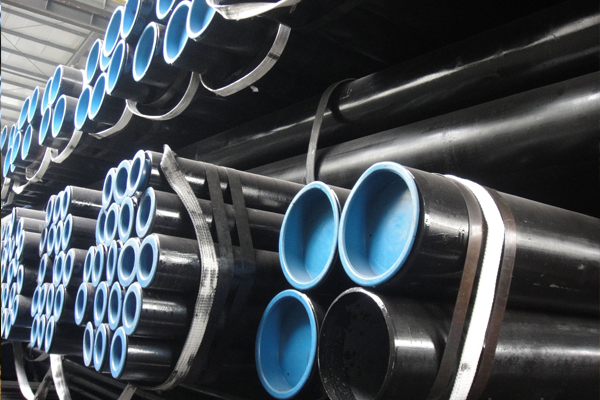ASTM A53 Grade B ERW (Electric Resistance Welded) pipes are among the most widely used carbon steel pipes in industries such as oil and gas, construction, water transmission, and structural applications. These pipes are known for their durability, strength, and affordability. This blog provides a comprehensive guide on ASTM A53 Grade B ERW pipes, covering their specifications, properties, applications, and benefits.
What is ASTM A53 Grade B ERW Pipe?
ASTM A53 Grade B ERW pipe is a welded carbon steel pipe manufactured using an electric resistance welding process. It is designed for mechanical and pressure applications, as well as for ordinary uses in steam, water, gas, and air lines.

ASTM A53 Grade B ERW Pipe Specifications
- Material: Carbon Steel
- Manufacturing Process: Electric Resistance Welded (ERW)
- Size Range: 1/2" to 24" (Nominal Pipe Size - NPS)
- Wall Thickness: Schedule 10 to Schedule 160, XXS
- Standards: ASTM A53 / ASME SA53
- Testing Requirements: Hydrostatic, non-destructive, mechanical, and chemical testing
Chemical Composition
The chemical composition of ASTM A53 Grade B ERW pipes ensures strength and durability:
- Carbon (C): 0.30% max
- Manganese (Mn): 1.20% max
- Phosphorus (P): 0.05% max
- Sulfur (S): 0.045% max
- Copper (Cu): 0.40% max (optional)
- Nickel (Ni): 0.40% max (optional)
Mechanical Properties
- Tensile Strength: 60,000 psi (415 MPa) min
- Yield Strength: 35,000 psi (240 MPa) min
- Elongation: Varies based on wall thickness and diameter
Key Features and Benefits
- Cost-Effective – ERW pipes are more affordable compared to seamless pipes.
- High Strength – Suitable for medium to high-pressure applications.
- Uniform Wall Thickness – Provides consistent performance and reliability.
- Excellent Corrosion Resistance – Can be coated for additional protection.
- Easy to Fabricate – Ideal for welding, bending, and forming.
Applications of ASTM A53 Grade B ERW Pipe
These pipes are widely used in:
- Oil & Gas Industry – Transportation of crude oil, natural gas, and petroleum products.
- Water Transmission – Municipal and industrial water supply systems.
- Structural Applications – Used in construction, bridges, and buildings.
- Boilers & Heat Exchangers – Suitable for high-temperature systems.
- Mechanical Engineering – Used in machinery and equipment manufacturing.
ASTM A53 Grade B ERW vs. Seamless Pipes
| Property | ASTM A53 Grade B ERW | ASTM A53 Grade B Seamless |
| Manufacturing | Electric Resistance Welded | Seamless |
| Cost | More Affordable | More Expensive |
| Strength | High | Higher |
| Corrosion Resistance | Moderate | Higher |
| Applications | Water, Gas, Oil, Structural | High-pressure, high-temperature applications |
How to Select the Right ASTM A53 Grade B ERW Pipe
When choosing ASTM A53 Grade B ERW pipes, consider:
- Application Requirements – Determine if the pipe is for structural, fluid transmission, or mechanical use.
- Pipe Size & Thickness – Ensure compatibility with operational requirements.
- Testing & Certification – Verify ASTM compliance for quality assurance.
- Coating & Protection – Galvanized options available for enhanced corrosion resistance.
- Supplier Reliability – Purchase from reputable manufacturers to ensure quality and durability.
Conclusion
ASTM A53 Grade B ERW pipes are a popular choice for industries requiring durable, cost-effective, and high-strength carbon steel pipes. Their excellent mechanical properties and versatile applications make them ideal for fluid transmission, construction, and industrial uses. Ensuring ASTM compliance and choosing the right specifications will help achieve optimal performance.
Looking for ASTM A53 Grade B ERW Pipes? Contact Us!
For high-quality ASTM A53 Grade B ERW pipes at competitive prices, reach out to us today for expert guidance and bulk orders.